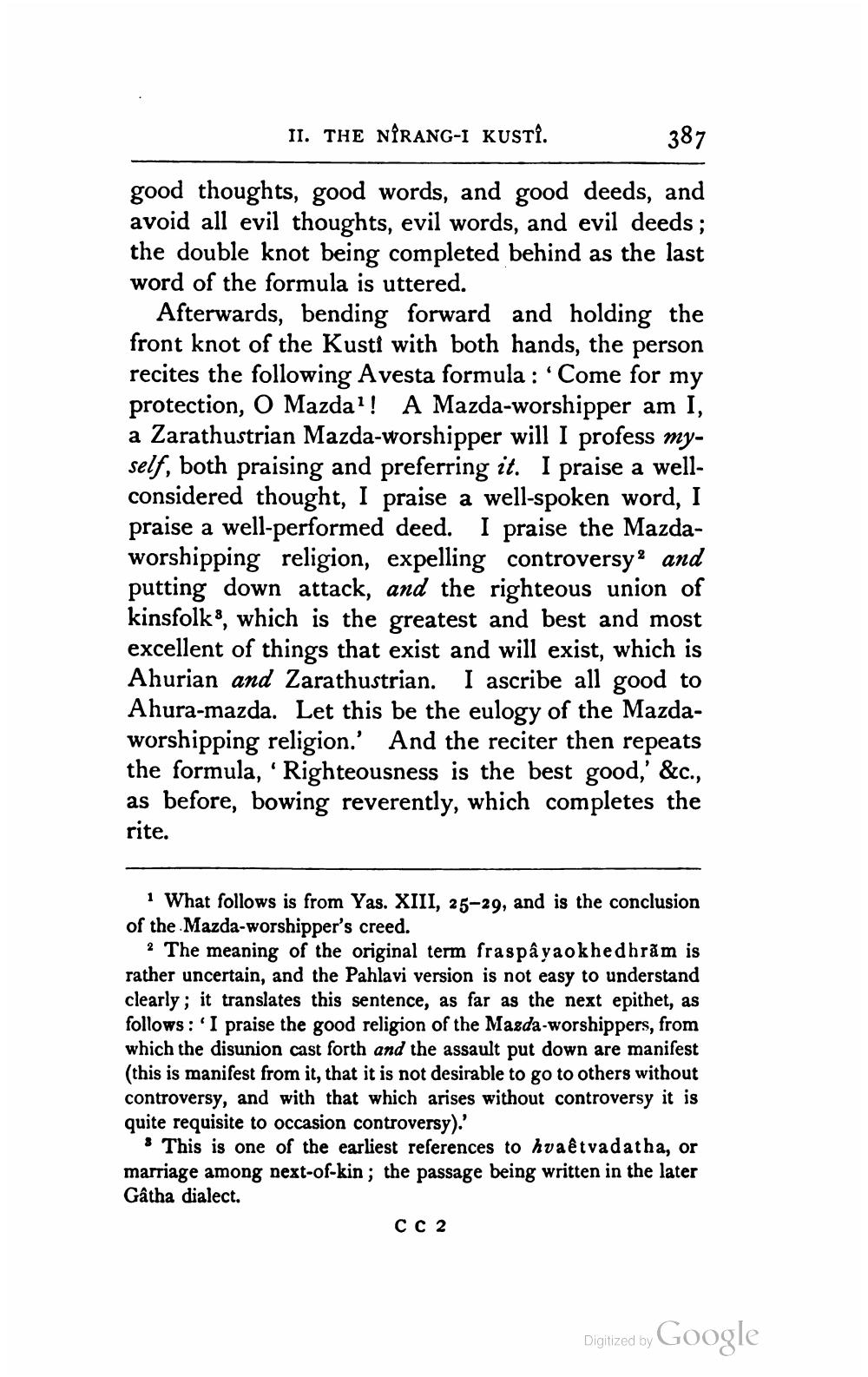________________
II. THE NÍRANG-I KUSTI.
387
good thoughts, good words, and good deeds, and avoid all evil thoughts, evil words, and evil deeds; the double knot being completed behind as the last word of the formula is uttered.
Afterwards, bending forward and holding the front knot of the Kusti with both hands, the person recites the following Avesta formula : 'Come for my protection, O Mazda?! A Mazda-worshipper am I, a Zarathustrian Mazda-worshipper will I profess myself, both praising and preferring it. I praise a wellconsidered thought, I praise a well-spoken word, I praise a well-performed deed. I praise the Mazdaworshipping religion, expelling controversy? and putting down attack, and the righteous union of kinsfolks, which is the greatest and best and most excellent of things that exist and will exist, which is Ahurian and Zarathustrian. I ascribe all good to Ahura-mazda. Let this be the eulogy of the Mazdaworshipping religion. And the reciter then repeats the formula, 'Righteousness is the best good,' &c., as before, bowing reverently, which completes the rite.
1 What follows is from Yas. XIII, 25-29, and is the conclusion of the Mazda-worshipper's creed.
2 The meaning of the original term fraspâ yao khedhram is rather uncertain, and the Pahlavi version is not easy to understand clearly; it translates this sentence, as far as the next epithet, as follows: 'I praise the good religion of the Masda-worshippers, from which the disunion cast forth and the assault put down are manifest (this is manifest from it, that it is not desirable to go to others without controversy, and with that which arises without controversy it is quite requisite to occasion controversy).'
% This is one of the earliest references to hvaêtvadatha, or marriage among next-of-kin; the passage being written in the later Gâtha dialect.
CC 2
Digitized by Google




